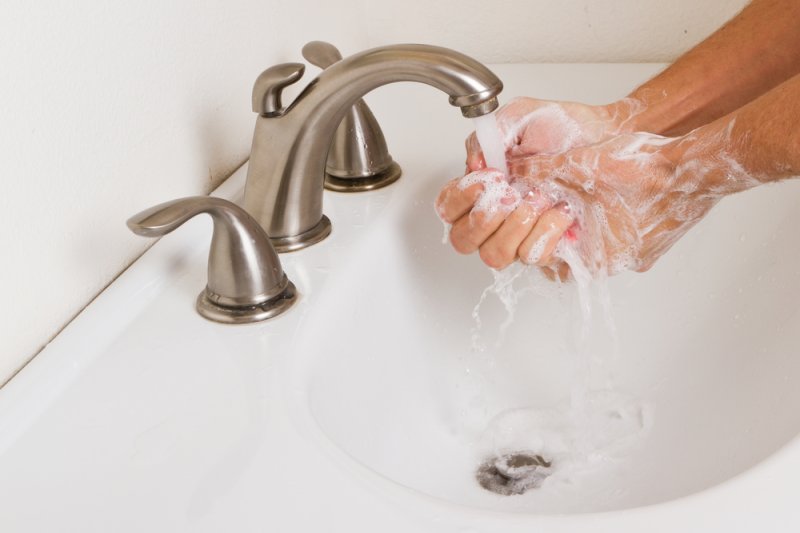"Hand washing prevents leading causes of the 6
million deaths that occur annually in young children around the
world... These data are useful to public health programs and policy
makers because they underscore the deep inequities that persist
globally," said Dr. Pavani Ram, a researcher at the University at
Buffalo.

***Amy Wallace
When News Breaks Out, We Break In. (The 2014 Bloggies Finalist)

A new study by the University at Buffalo shows access to soap
and water for hand washing in homes varies greatly based on income
levels. Researchers say improved hand washing habits could prevent
millions of children from contracting disease. Photo by
Wollertz/Shutterstock
June 26 (UPI) -- Researchers at the
University at Buffalo report that hand washing behavior, and access to
soap and water in the home, is lacking in low-income countries.
The study, published in the June edition of the American Journal of Tropical Medicine and Hygiene,
was conducted by researchers at the University at Buffalo, USAID,
UNICEF and other organizations, analyzed data from 51 surveys, revealing
the percentage of households around the world where soap and water for
hand washing was present varied greatly depending on income level.
"Hand washing prevents leading causes of the 6 million deaths that
occur annually in young children around the world. Never before has
handwashing been systematically measured in so many countries," Dr.
Pavani Ram, an associate professor of epidemiology and environmental
health and director of the Community for Global Health Equity at UB, said in a press release.
"These data are useful to public health programs and policy makers
because they underscore the deep inequities that persist globally and
within countries, contributing to these preventable child deaths among
people living in poverty and in rural areas in sub-Saharan Africa and
South Asia."
Researchers found the likelihood of having access to soap and water
in a dwelling ranged from 21 percent in Senegal to 99.1 percent in Iraq
and Serbia. Ethiopia had the lowest availability of soap in dwellings at
just 0.1 percent. Swaziland had the highest rate in Africa at 34.7
percent.
The availability of soap and water was less in poorer households than in middle to higher-income households in all areas.
Soap and water availability was higher in the Eastern Mediterranean region compared to Africa with 42.6 percent in Afghanistan to 91.5 percent in Iraq.
Nearly 79 percent of households in Bhutan had access to soap and water for handwashing compared to 21.4 percent in Bangladesh.
"This analysis demonstrates the need to promote access to handwashing
materials and placement at handwashing locations in the dwelling,
particularly in poorer, rural areas where children are more vulnerable
to hand washing-preventable syndromes such as pneumonia and diarrhea,"
the researchers stated
***Amy Wallace
When News Breaks Out, We Break In. (The 2014 Bloggies Finalist)
No comments:
Post a Comment